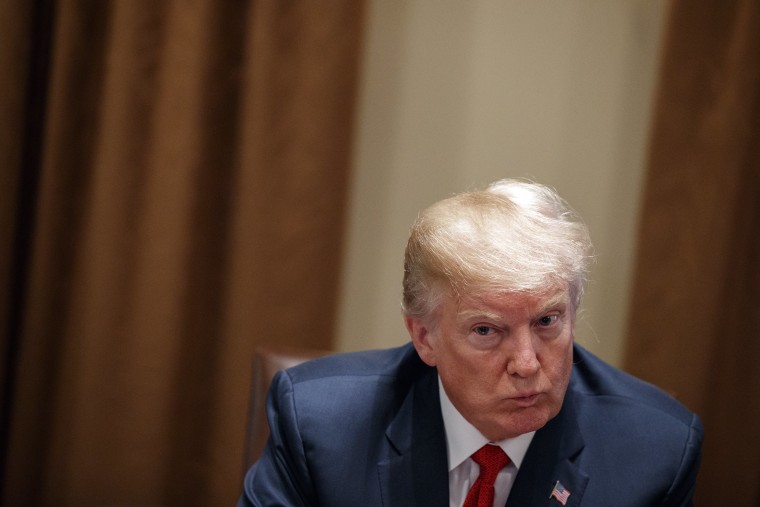During a brief Q&A with reporters yesterday Donald Trump was asked whether he planned to pardon Roger Stone, a longtime Republican operative who was recently convicted on seven criminal counts, including making false statements to federal investigators, obstruction, and witness tampering. The president answered that Stone wasn't involved in his campaign "in any way," except for the time in which he worked for Trump's campaign.
But that's not all Trump said.
"I think it's very tough what they did to Roger Stone, compared to what they do to other people on their side. I think it's very tough. I think it's a very tough situation that they did something like that. [...]"I've known Roger over the years. He's a nice guy. A lot of people like him. And he got very -- he got hit very hard, as did [former White House National Security Advisor Michael Flynn] and as did a lot of other people. They got hit very, very hard. And now they're finding out it was all a big hoax. They're finding out it was a horrible thing. It was -- we were spied on -- my campaign was spied on."
Trump continued to ramble for a while, insisting that Stone's prosecution was "very unfair," and the case against Flynn, in which he pleaded guilty, was also "very unfair."
As if that weren't quite enough, though the president wasn't specific as to whom he was referring, Trump added, "And now we found out they're a bunch of dirty cops.... These were dirty people. These were bad people. These were evil people."
To an unsettling degree, nearly everything the Republican said was gibberish. There's no evidence of prosecutorial wrongdoing, for example, in the Stone or Flynn cases. There's no evidence of the FBI "spying on" his campaign operation -- and a recent report from the Justice Department's inspector general drew the opposite conclusion.
There's no evidence of "dirty cops" at the FBI, and there's no evidence that "it" -- the president didn't exactly say what "it" referred to -- was "all a big hoax."
But as a practical matter, Trump's willingness to create a bizarre alternative reality is probably less important than what he intends to do with the conclusions drawn by way of this bizarre alternative reality.
We know, for example, that Trump has already demonstrated a willingness to abuse his pardon power, while also making clear that he believes federal prosecutions should be politicized to advantage his party.
It's against this backdrop that the president has convinced himself, facts be damned, that untrustworthy criminal prosecutors should've gone easy on his pals -- because of a "hoax" that only Trump can see.
Flynn is scheduled to be sentenced next month, with Stone's sentencing set for February. I won't pretend to know what's going to happen, but it appears the president's hints are less than subtle.
